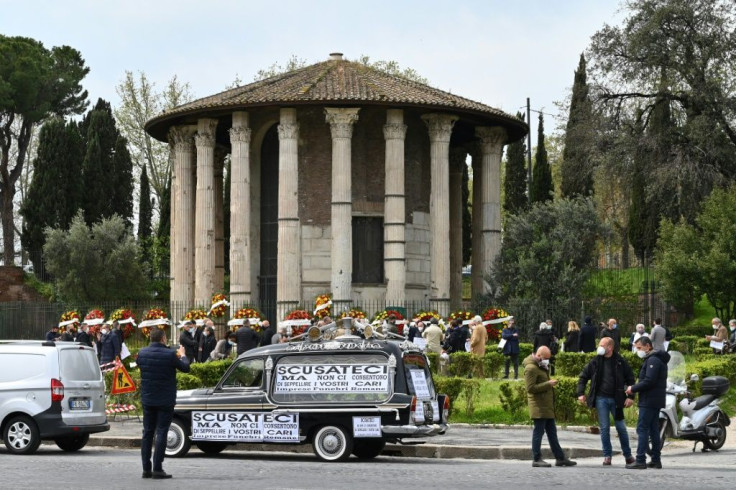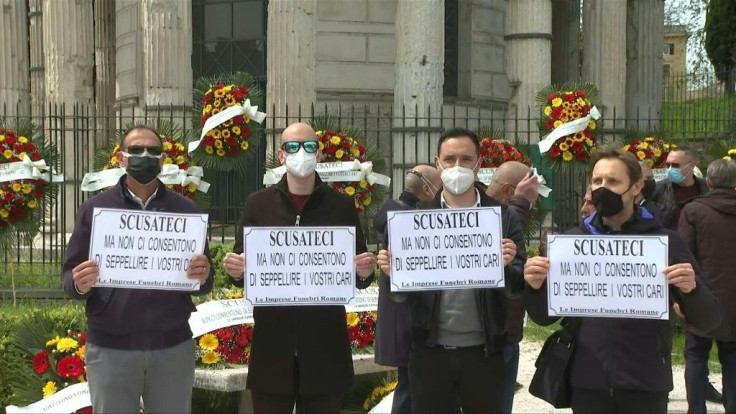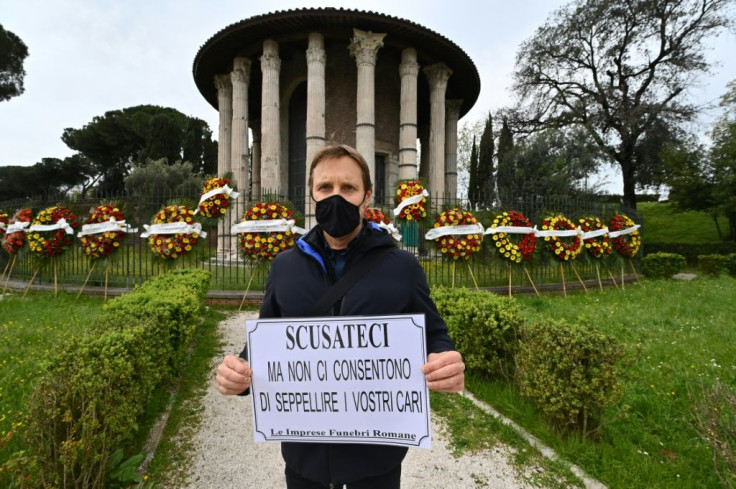Rome Red Tape Causes Bodies To Pile Up
Funeral home operators staged a protest in Rome on Friday over a desperate situation they say has left almost two thousand coffins in the Italian capital waiting weeks or even months to be cremated.
While coronavirus has not helped the situation, the increase in deaths and limited access to public services caused by the pandemic has only exposed a long-standing problem blamed on Italy's old nemesis -- bureaucracy.
"We appeal to the mayor of Rome to end the current procedures needed to authorise a cremation," Giovanni Caccioli, national secretary of the Italian Federation of Funeral Homes, told AFP at the protest.

Standing alongside their hearses, the funeral workers laid wreaths around the Roman Temple of Hercules Victor, near Mayor Virginia Raggi's office, with notices reading: "Sorry, they will not let us bury your loved ones."
According to Caccioli, Rome registers around 15-18,000 requests for cremations every year, for which families must go through a "tortuous" bureaucratic journey involving the local cemetery, the municipal agency AMA and the registrar office.
Earlier this week, a bereaved son, Oberdan Zuccaroli, staged a very personal protest by putting up billboards around Rome with the message: "Mum, sorry I've not been able to have you buried yet."
But he is far from the only one for whom the delays have exacerbated the pain of losing a loved one.

"It's been three months that I've been waiting for my husband's cremation, and still nothing has been done," said Lorella Pesaresi, whose husband died in January after testing positive for coronavirus while undergoing chemotherapy.
"It's not fair -- coronavirus and now this," she told AFP.

He noted other cities did it in one or two days, adding: "We can't go on like this."
Maurizio Tersini, who runs Le Sphinx funeral home, says around 1,800 coffins are currently waiting to be incinerated in Rome.
"The main problem is a bureaucratic one," the 59-year-old told AFP, adding: "It is a great suffering for the families."
However, it is not a new problem.
The Cgil trade union warned in September that hundreds of coffins were piling up at Rome's Prima Porta-Flaminio cemetery after one of the other two main cemeteries in the city, Laurentino, ran out of space for burials.
"They didn't do what was decided in 2017, which was to build four new crematoriums and expand Laurentino," the head of Cgil in Rome, Natale Di Cola, told AFP on Friday.
The situation has been exacerbated by the pandemic, which has claimed more than 116,000 lives in Italy, according to the official toll -- although Rome has not been as hard hit as other regions.
"What was a crisis became chaos," Di Cola said.
AMA, the city hall agency that manages the cemeteries, said in a statement earlier this week that the situation was under control and that efforts were continuing to free up burial spaces.
It added that it had been confronted with a 30 percent increase in deaths year-on-year during the period from October 2020 to March 2021.
© Copyright AFP {{Year}}. All rights reserved.




















